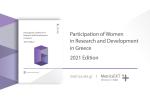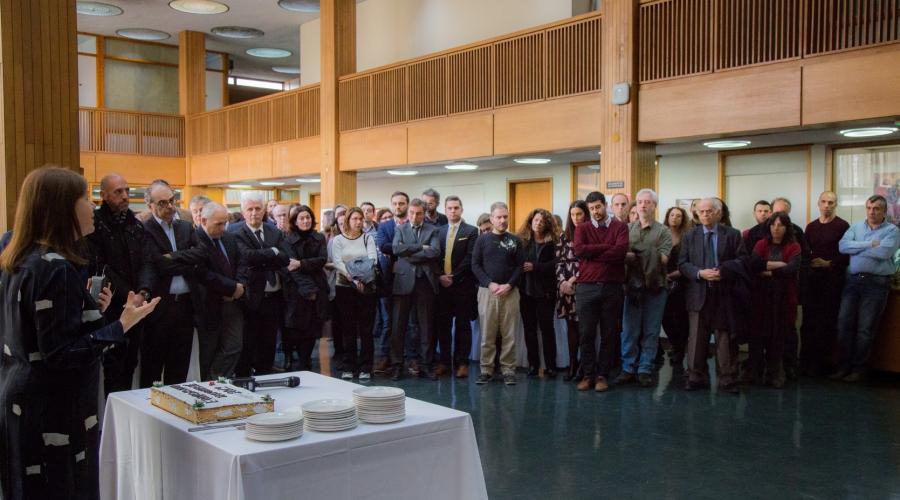
In a particularly warm atmosphere, the National Documentation Centre (EKT) celebrated the cutting of its 'Vasilopita' or New Year cake, as is the custom. The event was attended by representatives of the government and associated institutions, staff, friends and partners of EKT who gathered together on Thursday 31 January 2019 in the Library of Science Technology & Culture (''The K.Th. Dimaras Library'') on the premises of National Hellenic Research Foundation (NHRF) to exchange new year greetings and welcome 2019 which is expected to be even more dynamic and outward-looking than 2018, according to Dr Evi Sachini, Director of EKT.
The celebration was attended by a number of eminent people, including the Chairperson of the NHRF Board of Directors, Dr Vasilis Gregoriou, the Chairperson of EKT's Scientific Council, Prof. Aristotle Tympas, the Secretary General for Strategic and Private Investment, Ministry of Economics and Development, Prof. Lois Lambrianidis, the Secretary General for International Economic Relations and Development Cooperation, Ministry of Foreign Affairs, Ioannis Brachos, the Chairperson of the National Broadcasting Council, Athanasios Koutroumanos and Apostolos Kasapis from the Hellenic Statistical Authority.
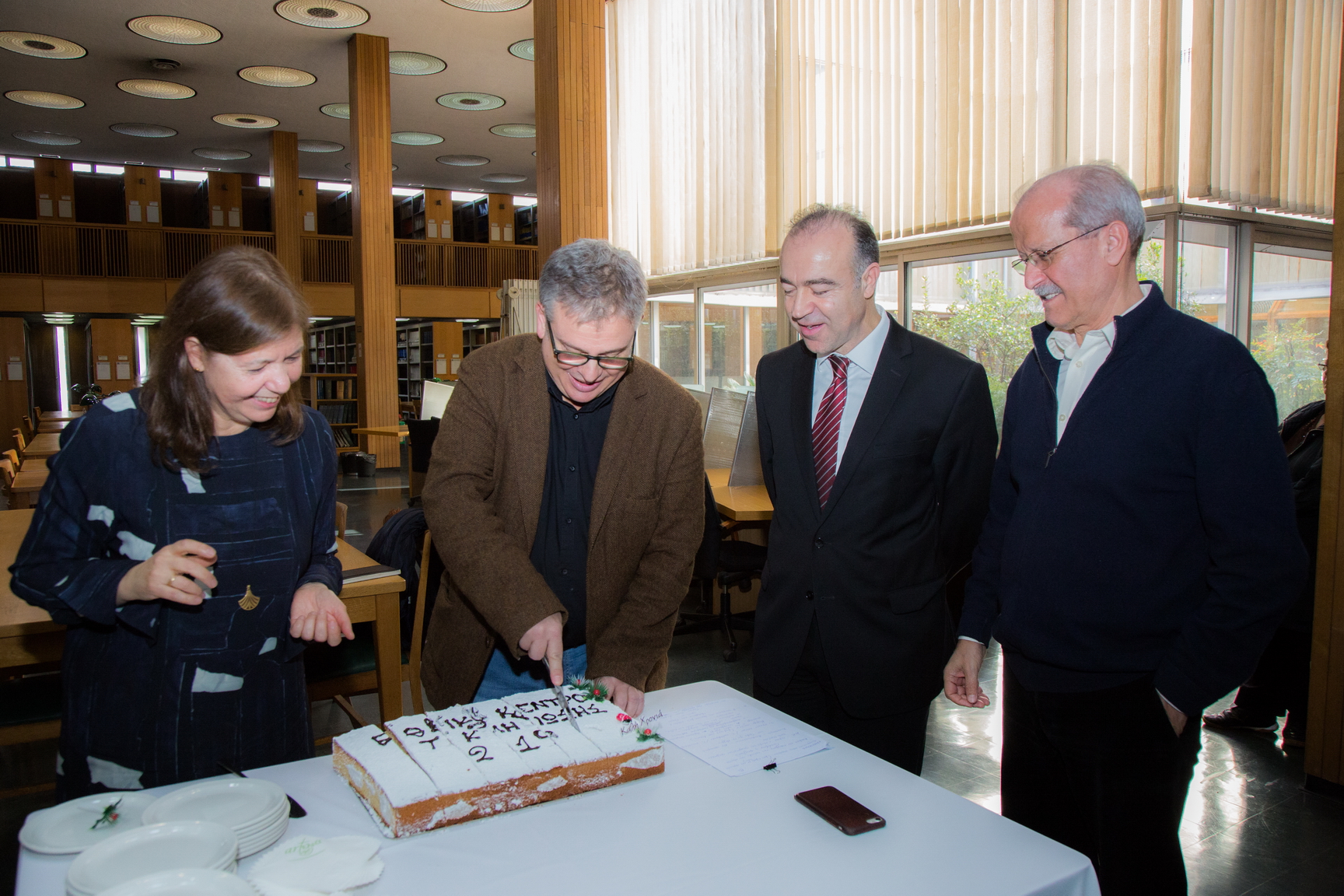
After warmly welcoming everyone there, the Director of EKT, Dr Evi Sachini gave a brief overview of the achievements of 2018, and hinted on the goals for the new year.
Dr E. Sachini presented EKT's three pillars under which its services are developed (eContent-Digital Content and Services, Metrics-indicators & statistics for Research, Technology, Development, Innovation, Innovation-services for networking, partnerships, development), noting that “2018 brought to a close a development phase for EKT, a period which left a rich legacy for the future strategy and vision of the institution”.
With reference to its eContent pillar and the actions of the Digital Library, the Director of EKT stated, 'Knowledge is a public good and this is what we serve. We have one of the best information infrastructures in the country in terms of organisation, management and content availability. We add value to information and we organise it in an effective way, so that everyone can find what they are searching for'. For years scientific, cultural and educational institutions of the country have faced problems accessing documented knowledge. Now, through EKT's use of cutting edge technology and with the help of its expert personnel, infrastructures have been developed to facilitate access.
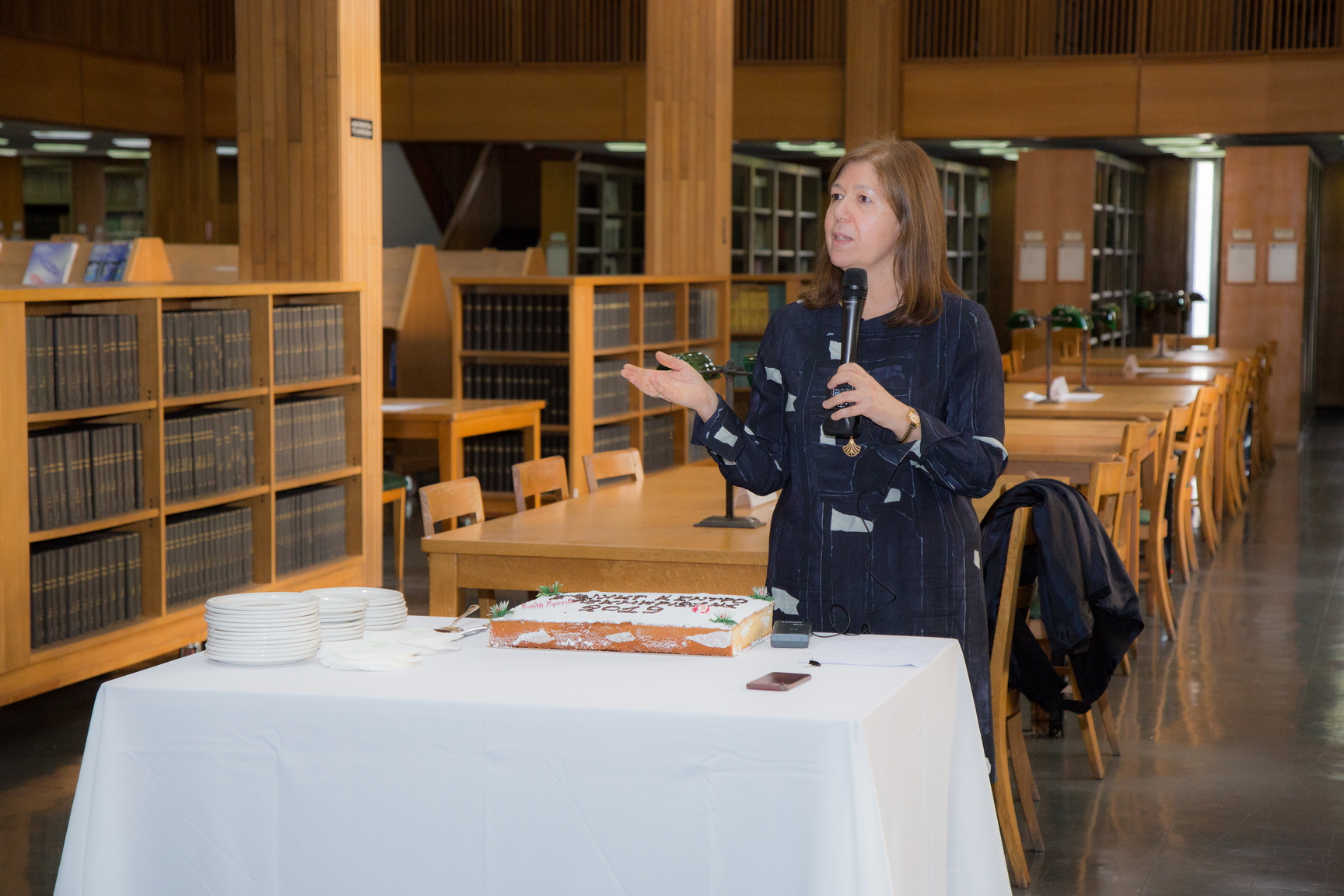
Dr E. Sachini went on to talk about Metrics and the work of measuring and mapping Greek research and innovation activities. This particular pillar is part of the EKT ecosystem and has been developed over the last decade.'It has put EKT on the national and international map as an organisation that collects and processes data in order to reflect the development and research output of the country in areas that are particularly important for the economy and society.' 'We are working for issues concerning research excellence and the ability of Greeks to generate internationally important knowledge to be included in political agendas and be of interest to the media,' explained the EKT Director.
She drew particular attention to the Innovation pillar which focuses on innovation support, entrepreneurship and networking. By providing specialised services to the business and the research community, EKT activities contributed to “demonstrating excellence in the broadest sense, achieved by a country which understands that in order to grow you need to tap the human capital available and the research results it produces'.
The result of all this activity was leveraged with the new national initiative called 'Knowledge and Partnership Bridges'. It is a collaboration of EKT and the General Secretariat for Strategic and Private Investment, Ministry of Economics and Development. As Dr E. Sachini noted, 'Through this initiative, we are trying to map the highly-skilled personnel abroad and explore features and policies that may help reduce the so-called brain drain. At the same time, we use technology for successful and mutually beneficial interaction between Greeks around the world.'
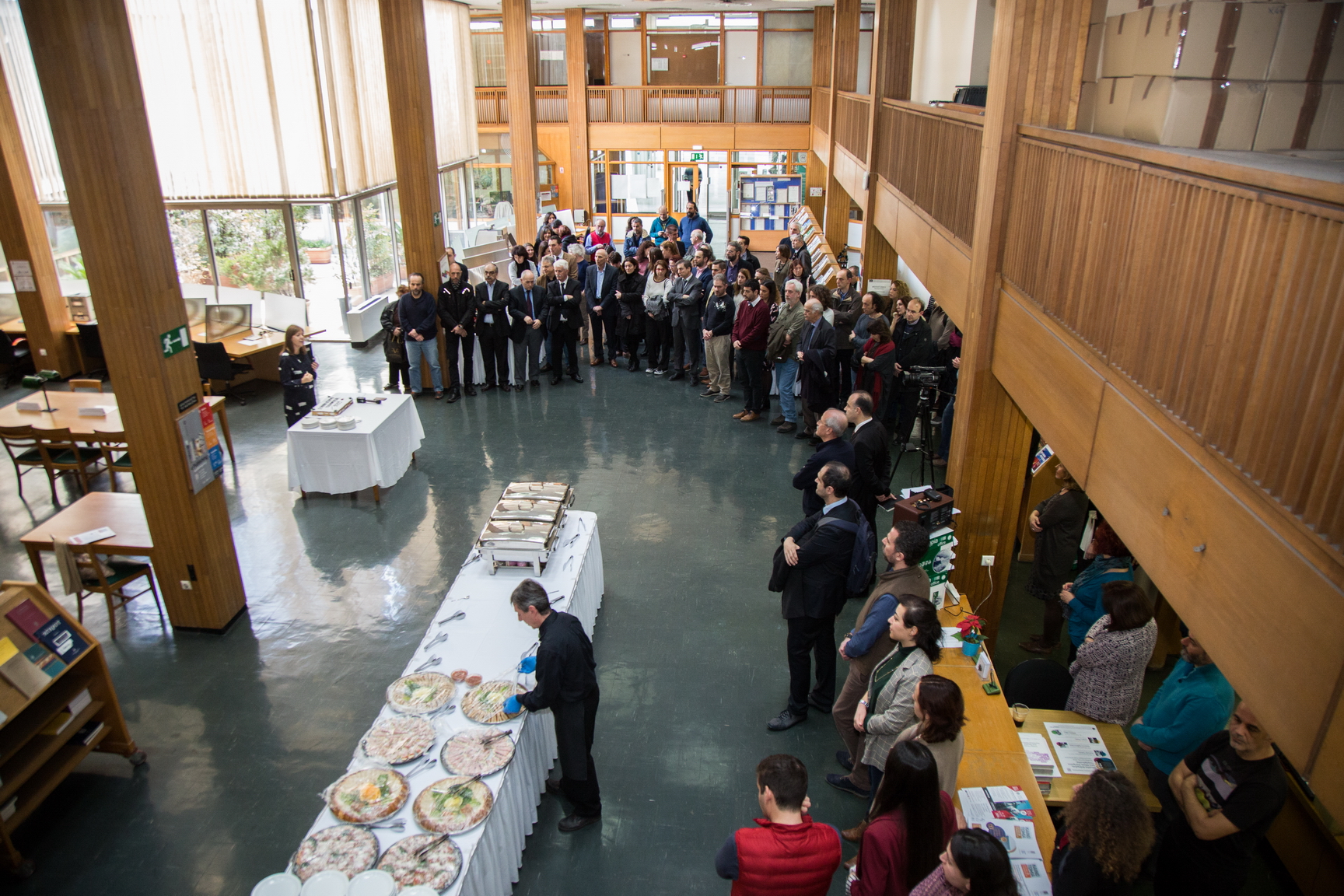
The Director of EKT reported on strategy and EKT's many partnerships saying, 'Serving the public interest, we transfer expertise, services and tools to those we collaborate with, so as to better promote their work, contributing to their digital transformation.' She highlighted EKT partnerships with institutions such as the Hellenic Statistical Authority and the National Council for Radio and Television.
In closing, Dr E. Sachini thanked all those who have contributed to achieving the goals set by the institution, the NHRF Board of Directors, the EKT Scientific Board, friends, partners and all its employees.
Vasilis Gregoriou and Aristotle Tympas both praised not only the work and achievements of EKT, but also the contribution of the Director in this creative process.
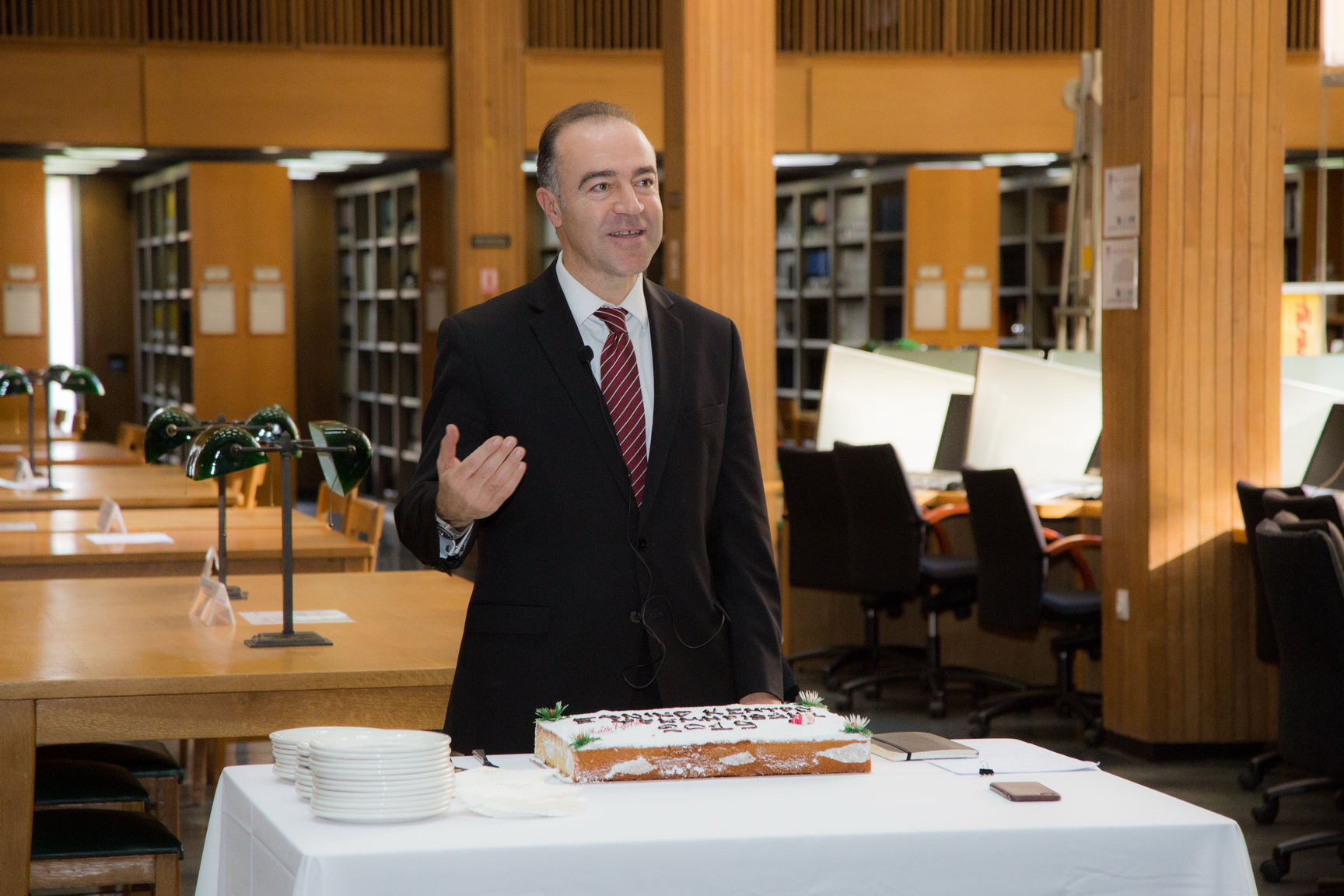
Dr. V. Gregoriou focused on the importance of production and promotion of new and existing knowledge EKT offers Greek research, academic and business communities, while stressing EKT's duty to continue in the years to come with the same success in promoting the country abroad.
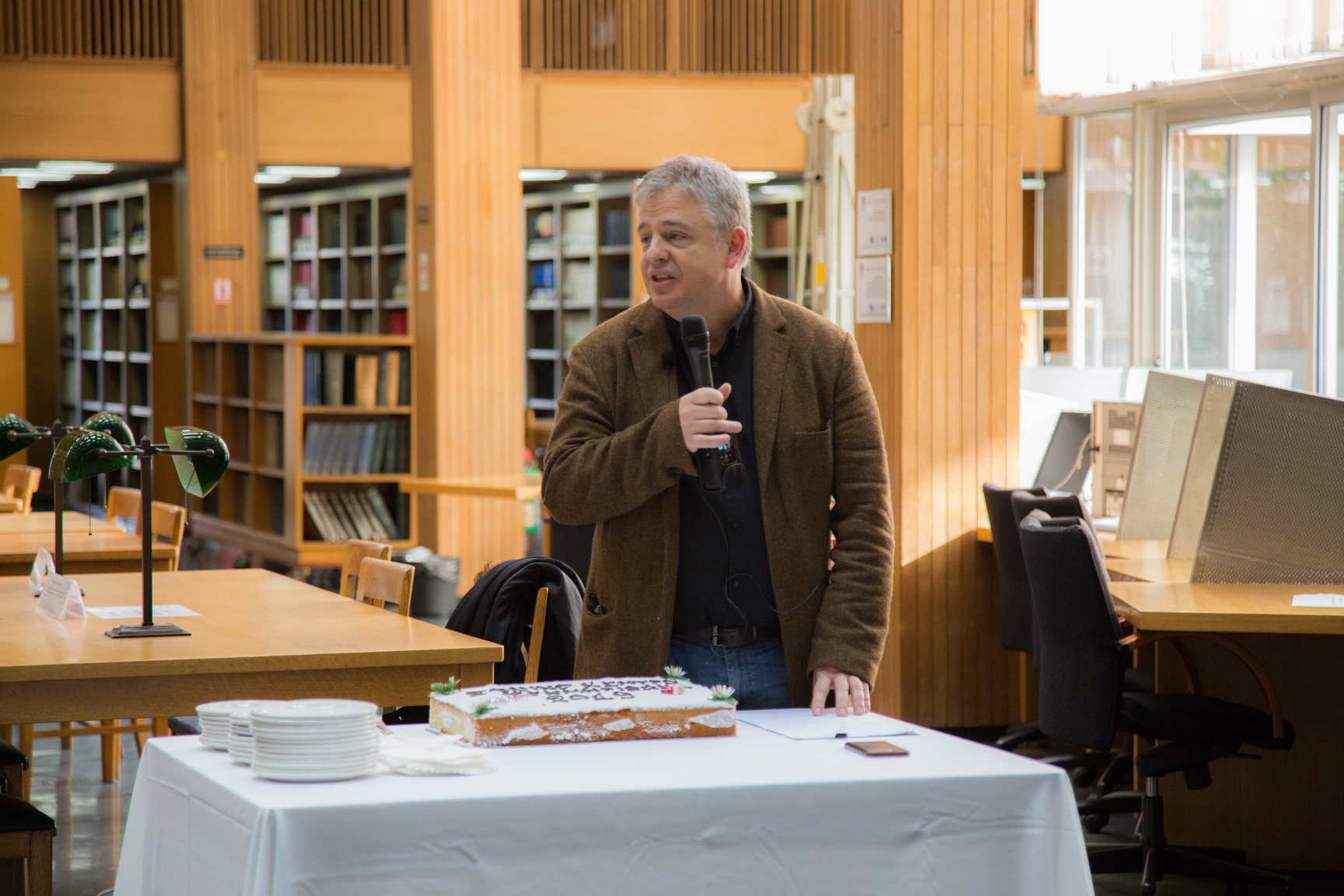
Prof. A. Tympas stressed that in a digital society such as we live in, there is a great need for institutional paradigms and EKT is one of those. He stressed that all the right conditions for EKT to further develop in the coming years are in place.















